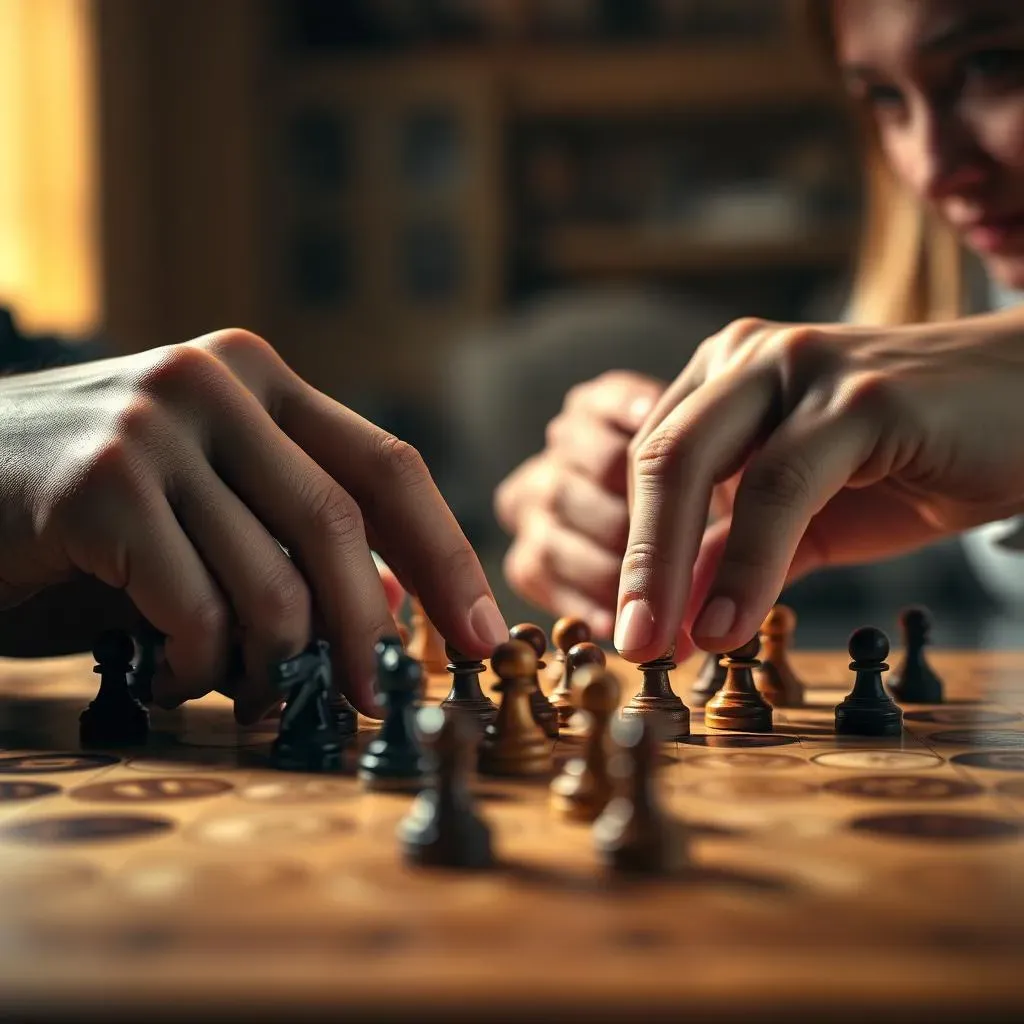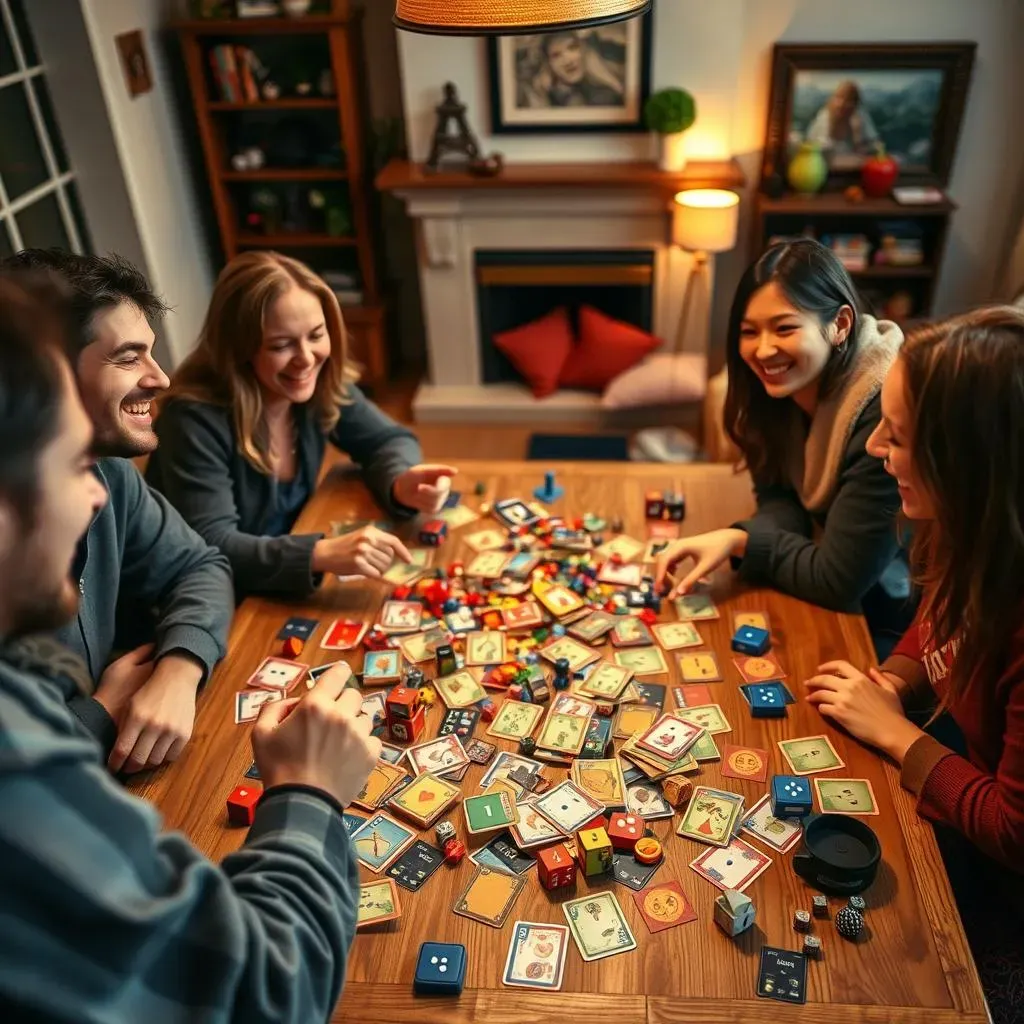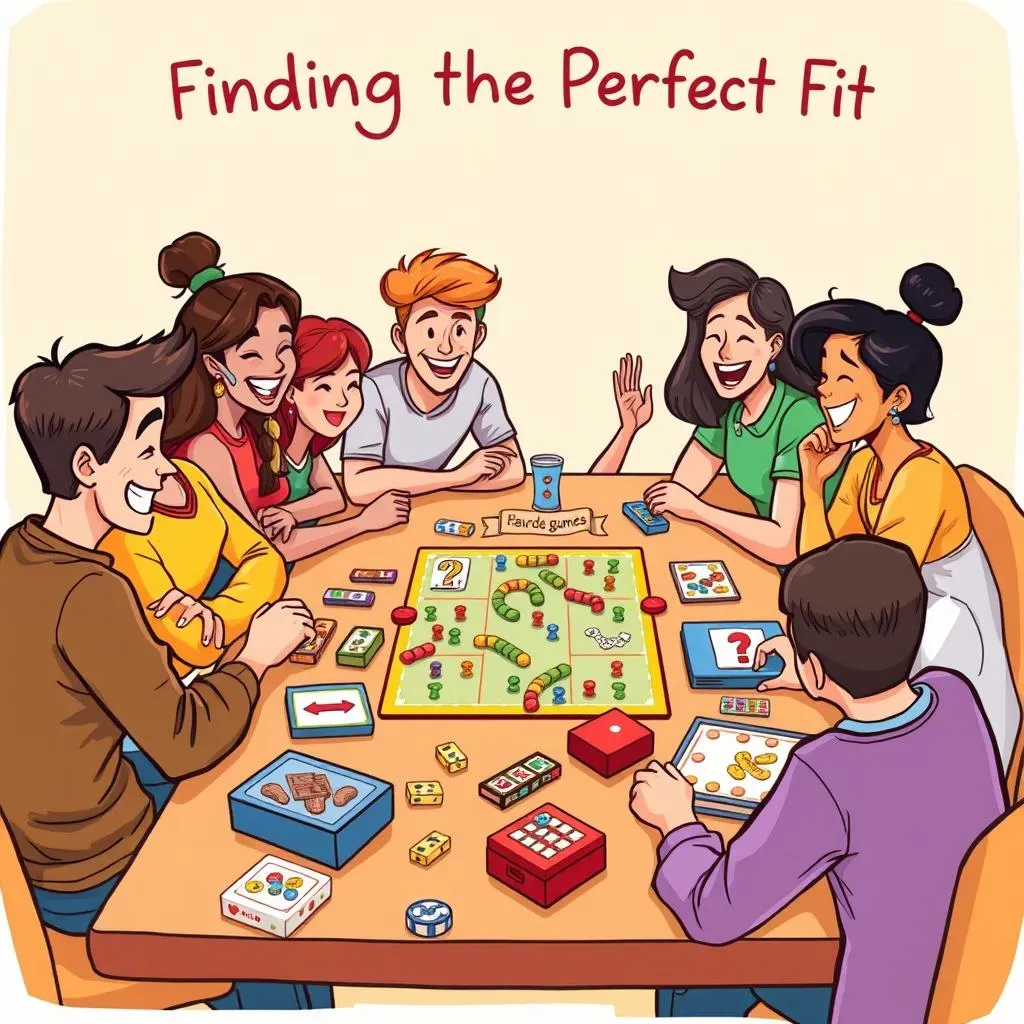Table of Contents
Ever stared at your game shelf, wondering if it's a two-person kind of night or a four-player party? You're not alone. Picking the right board game for your group can be tricky. Some games shine with just two players, offering a tense, strategic battle, while others truly come alive with a table full of four, bringing laughter and chaos. This isn't just about the number of players; it's about the kind of experience you're after. We'll explore the unique joys of both 2-player and 4-player board games, helping you decide which is best for your next game night. We'll look at what makes each format special, from the intense focus of a two-person duel to the social buzz of a larger group. Get ready to find your perfect match in the world of 4 player or 2 player board games.
Why Choose 2 Player Board Games? The Intimate Duel
Why Choose 2 Player Board Games? The Intimate Duel
The Strategic Showdown
Let's face it, sometimes you want a focused battle of wits, not a chaotic free-for-all. That's where 2-player board games really shine. They offer a chance to truly test your strategic skills against a single opponent. Think chess, but with way more exciting themes and mechanics. You're not just reacting to the moves of a crowd; every decision you make directly impacts your opponent, and vice versa. It's a dance of calculated risks and cunning maneuvers, where every move matters.
I remember playing a two-player game of "7 Wonders Duel" with my friend, Sarah. The tension in the room was so thick you could cut it with a knife. Each card we picked felt like a huge gamble, and the game came down to the very last turn. That kind of intense, personal competition is something you just don't get with a big group.
Why two is better than four
Two-player games also cut out a lot of the downtime you often get with larger groups. You're not waiting around for three other people to make their move. It's just you and your opponent, constantly engaged in the action. This makes for a faster-paced game, which is perfect if you're short on time or just prefer a more streamlined experience. Plus, it's easier to have a conversation while playing, making it a great option for a relaxed evening with a friend or partner. It's like a movie night, but with more thinking and less popcorn.
For instance, my wife and I love playing "Jaipur" on weeknights. It's a quick, engaging game that fits perfectly into our busy schedules. We can easily get a game in before dinner or after the kids are in bed, and it's a fun way to connect and unwind.
Feature | 2-Player Games | 4-Player Games |
|---|---|---|
Focus | Intense, Strategic | Social, Collaborative (or Chaotic) |
Pace | Fast, Streamlined | Slower, More Downtime |
Interaction | Direct, Personal | Indirect, Group Dynamics |
Best For | Strategic Battles, Focused Fun | Social Gatherings, Lighthearted Play |
The 4 Player Board Games Experience: More the Merrier?
The 4 Player Board Games Experience: More the Merrier?
The Social Hub
so you've had your fill of intense one-on-one battles and now you are craving a bit more chaos? Four-player board games are where the party's at. It's like turning up the volume; suddenly, the game becomes a shared experience, filled with laughter, groans, and maybe a little bit of friendly trash-talking. It's not just about winning anymore; it's about the journey you take together. The dynamics shift as alliances form and break, and the game becomes a social event as much as a competition.
I remember one epic game of "Ticket to Ride" with three of my buddies. We were all vying for the same routes, and the table was filled with shouts of "No way!" and "I need that!". One friend, Mark, was so focused on building his route that he didn't notice the rest of us were about to cut him off, and the look on his face was priceless. It's these kinds of moments that make four-player games so memorable.
Group Dynamics and Controlled Chaos
With four players, you're dealing with more variables, more personalities, and a greater chance for unexpected twists. The strategy is not always about individual moves, but about navigating the group dynamic. You have to think about who might be ganging up on you, who you can trust, and when to make your move. It adds a layer of complexity that's both challenging and fun. It's also a great way to get to know your friends better, or to see their competitive side come out.
Take "Codenames," for example. It's a four-player game where you're working with a partner, trying to decipher clues and make the right connections. But, you also have to be careful because the other team is listening, trying to steal your clues and make their own moves. It's a whirlwind of communication and deception, and it's always a good time.
Aspect | 2-Player Experience | 4-Player Experience |
|---|---|---|
Social Interaction | Direct, Focused | Group-oriented, Social |
Strategy | Individual, Tactical | Group-based, Dynamic |
Atmosphere | Intense, Competitive | Lively, Collaborative |
Ideal For | Quiet Evenings, Strategic Minds | Parties, Social Gatherings |
Finding the Perfect Fit: Matching Games to Your Group Size
Finding the Perfect Fit: Matching Games to Your Group Size
Know Your Crowd
Alright, so we've talked about the joys of both two-player and four-player games, but how do you actually pick the right one for *your* group? It's not just about the number of people; it's about what kind of experience you're all craving. Are you in the mood for a quiet, strategic evening, or a loud, laughter-filled free-for-all? Knowing your audience is key. Think about your friends' personalities, their patience levels, and their preferred level of complexity. Some people love getting lost in intricate rules, while others prefer something more straightforward and easy to pick up.
For example, if you've got a group that loves to chat and laugh, a game like "Telestrations" or "Cards Against Humanity" would be a great fit. But if your friends are more into deep strategy, something like "Terraforming Mars" or "Gloomhaven" would probably be a better choice. And sometimes, you just want to keep it simple with a classic like "Ticket to Ride" or "Catan" that hits the sweet spot for a lot of people.
The Game Itself Matters
It's not just about the number of players, but the game itself. Some games are designed to shine with two, and others need four to truly come alive. A game like "7 Wonders Duel," for example, is specifically designed for two players, and it loses its magic when you try to add more. Similarly, "Codenames" is best with four players, or even more, because it thrives on the chaotic group dynamic. Pay attention to the player count recommendations on the box, but also consider the game mechanics and how they might play out with your specific group.
I've made the mistake of trying to play a two-player game with four people, and it was a disaster. The game was clearly designed for a one-on-one battle, and it just didn't work with the extra players. The game was slow, and everyone was just waiting for their turn. It was a good reminder that not all games are created equal, and that it's important to choose something that fits the number of people you're playing with.
Group Type | Game Style | Game Examples |
|---|---|---|
Quiet & Strategic | Intense, Two-Player Focus | 7 Wonders Duel, Jaipur, Chess |
Social & Lively | Collaborative, Four-Player Fun | Ticket to Ride, Codenames, Telestrations |
Mixed Group | Mid-Weight, Flexible Player Count | Catan, Carcassonne, Pandemic |
Be Flexible
The final key is to be flexible. Sometimes, you might have a game in mind, but the group isn't quite right for it. Don't be afraid to change your plans and choose something different. It's better to go with a game that everyone will enjoy, rather than forcing something that doesn't quite fit. And remember, sometimes the best game nights are the ones where you try something new and unexpected. It's also a good idea to have a few different options on hand, so you can quickly switch gears if needed.
I've found that having a selection of games, ranging from two-player options to four-player and beyond, is the best way to be prepared for any situation. You never know who's going to show up, or what everyone will be in the mood for, so being flexible and having some options is key to a successful game night. And remember, the most important thing is to have fun and enjoy each other's company. The game is just a tool to help you do that.
Wrapping Up: Your Perfect Board Game Awaits
So, whether you're craving a head-to-head challenge with a single opponent or the lively buzz of a four-player game night, the world of board games has you covered. It's not about one being better than the other, but rather about finding what fits your mood and your group. Think about the kind of experience you want – the strategic depth, the social interaction, the laughter – and let that guide your choice. Now go forth, gather your friends (or that one special opponent), and get gaming!